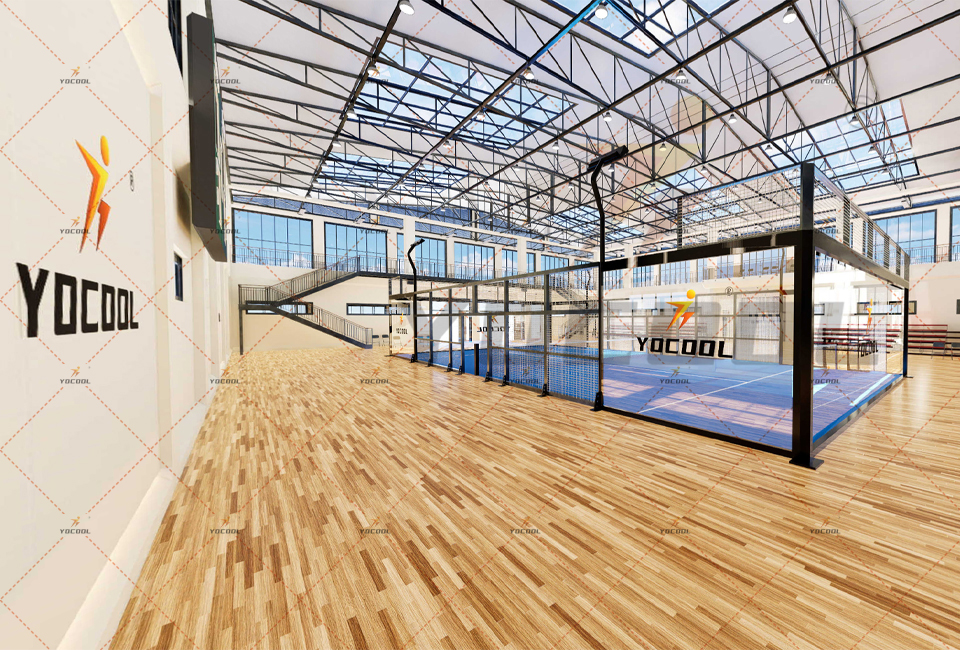

Building a Padel Court A Comprehensive Guide
Padel, a racquet sport that combines elements of tennis and squash, has seen a significant rise in popularity around the world. With its engaging gameplay and social nature, more and more people are looking to build their own padel courts. If you're considering adding a padel court to your property or community space, this guide will walk you through the essential steps to ensure a successful project.
Understanding the Basics
Before diving into the specifics of construction, it’s important to understand the dimensions and layout of a standard padel court. A typical padel court measures 20 meters long and 10 meters wide, enclosed by walls that are 3 meters high. The playing surface can be made of various materials, with artificial grass being the most common due to its durability and ease of maintenance. The court is divided into two equal halves by a center net that is similar to a tennis net but slightly lower.
Choosing the Right Location
Selecting an appropriate location for your padel court is crucial. Look for a flat, accessible space with good drainage to prevent water accumulation after rain. Ideally, the court should be shielded from strong winds and direct sunlight, perhaps by positioning it near trees or buildings. Consider accessibility for players and spectators alike, as well as proximity to parking facilities if the court will be used by the public.
Planning and Design
Once you've secured a location, it's time to design your court. You might want to hire an architect or a specialist company with experience in constructing padel courts. They can help you adhere to local regulations and ensure that your design meets international padel standards. Additionally, consider adding features like seating areas, lighting for nighttime play, and landscaping to enhance the overall experience for players and spectators.
Budgeting for Construction
A clear budget is essential when building a padel court. Costs can vary widely based on materials, location, labor, and additional features you may want to include. On average, constructing a basic padel court can range from $20,000 to $50,000. It’s advisable to get quotes from multiple contractors and to factor in maintenance costs, as the artificial grass and surrounding infrastructure will require care over time.

Construction Process
The construction process typically involves several key stages
1. Site Preparation Clear the area of any debris and ensure it is level. Depending on the terrain, this might require excavation.
2. Installing the Base Lay down a solid base using gravel or crushed stone to aid drainage and provide stability.
3. Fencing and Walls Install the glass and mesh walls that make up the court. Ensure they are securely anchored and comply with safety standards.
4. Surface Installation Choose a high-quality artificial grass surface, which will be laid over the prepared base. Make sure to use proper techniques to ensure longevity and optimal playability.
5. Net and Final Touches Finally, install the center net and any additional features such as lighting. Make sure everything is checked for safety and compliance before opening your court to players.
Promoting Your Court
Once your padel court is completed, promoting it is key to its success. Hosting local tournaments, offering lessons, or partnering with local clubs can attract players and create a vibrant community around your court.
In conclusion, building a padel court can be a rewarding venture that contributes positively to your community or personal enjoyment. With careful planning, budgeting, and execution, you can create a fantastic space for countless hours of fun and competition. Whether for personal use or a public facility, a padel court can become a social hub that fosters camaraderie and fitness.
Industrial Flooring Solutions for Indoor Paddle Tennis Factories
Premium Homogeneous Transparent Rubber Floor - Durable & Clear
Premium PVC & Rubber Sports Flooring - Safety & Durability
Premium Rubber Composite Flooring - Durable & Anti-Slip for Safety
Durable & Slip-Resistant Industrial Flooring for Squash Courts & Factories
Premium Rubber Floor Mats Durable, Non-Slip & Easy Clean